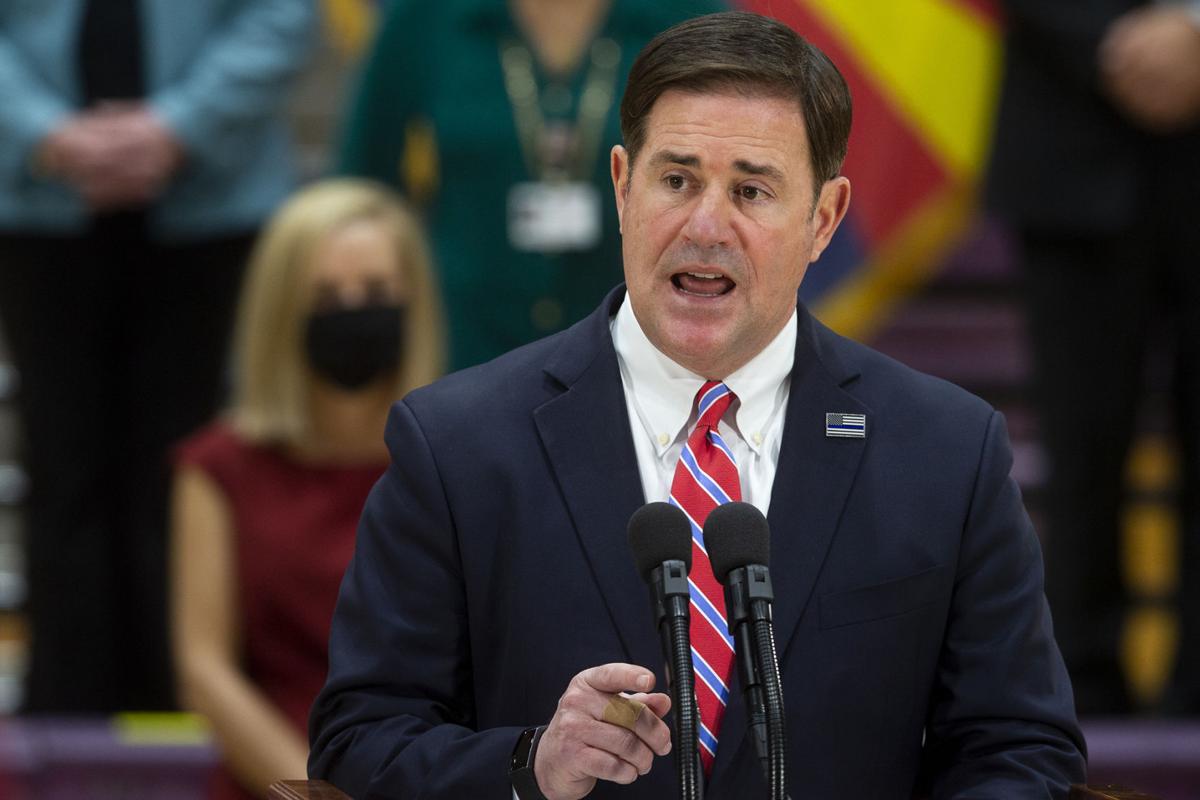PHOENIX — The head of the state Department of Revenue was ousted Tuesday after he took a legal position on a new tax contrary to that of Gov. Doug Ducey, his boss.
Ducey announced in a news release that Rob Woods, the department’s deputy director, will serve as interim director.
More telling is that the release makes no reference to Carlton Woodruff, whom Ducey tapped for director in September 2019 with a glowing endorsement of him as “a highly qualified, dedicated public servant.” Instead, only Woods was mentioned.
“I’m grateful to Rob for stepping up to this important role during a challenging time for our state,” Ducey said in his prepared statement.
As for Woodruff, “we don’t comment on personnel matters,” said gubernatorial spokesman C.J. Karamargin.
He later confirmed that Grant Nulle, another deputy director of the department, also was fired on Tuesday.
The actions came less than 24 hours after Capitol Media Services reported that Woodruff’s department mounted a vigorous defense of the legality of Proposition 208, the voter-approved levy on the richest Arizonans to raise money for K-12 education.
“This does not reflect Gov. Ducey’s position on this issue,” Karamargin said.
The governor was actively opposed to the Invest in Education initiative, which imposes a 3.5% surcharge on incomes of individuals earning more than $250,000 a year and couples with adjusted incomes of more than $500,000. The levy, which does not affect anyone with earnings below that level, is expected to raise between $827 million and $940 million a year.
Arizona voters approved it Nov. 3, with 51.7% favoring the measure.
The business interests who unsuccessfully fought for its defeat are now in court arguing the plan is unconstitutional. They are asking a judge to immediately bar collection of the money until there can be a full trial on the issue.
Those arguments are getting a fight from initiative supporters, but also from a lawyer retained by the Attorney General’s Office to represent the Department of Revenue and the state as a whole, Brian Bergin. Both had to be named as defendants in any lawsuit challenging a statute, even one enacted by voters.
Bergin did more than simply argue that the statute is presumed valid.
“Proposition 208 apparently reflects the voters’ belief that the state’s educational system is underfunded and requires additional permanent funding that the Legislature has been unable, or unwilling, to provide,” he wrote.
“The people have spoken in approving Proposition 208,” Bergin continued. “Public policy heavily weighs against imposing injunctive relief.”
That court filing — and the Capitol Media Services report on it — apparently came as a surprise to the governor.
“The role of state agencies is not to take policy positions but to implement the law,” said Karamargin.
“Courts will ultimately decide what the law is,” he continued. “And our expectation is that state agencies will follow the law.”
Efforts to reach Woodruff for comment were unsuccessful.
Documents show Bergin was appointed by the Attorney General’s Office, which normally defends the state in lawsuits, on Dec. 3 to represent the Department of Revenue and the state in the case.
Ryan Anderson, a spokesman for the attorney general, said he could not specify why the decision was made to farm this case out to a private lawyer.
“Generally speaking, we assign outside counsel for a number of reasons such as conflicting matters within the office, insufficient resources or a lack of expertise on certain legal matters,” Anderson said. He said such decisions also are made on “agency client considerations.”
Anderson said he could not comment on what instructions the Department of Revenue provided Bergin about the kind of defense of the law he was to provide, referring those questions to Bergin, who did not immediately respond.
Woodruff had become interim director of the Revenue Department in December 2018 after Ducey was reelected.
The pick became permanent in September 2019, with the governor saying Woodruff had made the department more efficient, effective and responsive.
Before taking the reins at the department, Woodruff had been a deputy director and was deputy state treasurer since 2011.





